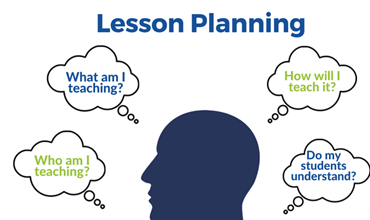Micro Teaching in English Language Teaching
Everyone who has already worked for a school which is committed to the development of their students, has been through the terrifying moment of micro teaching.To be precise, what is micro-teaching and why is it so important?
Micro teaching is the practice of teaching to other teachers in order to get feedback and assessment on the tools, strategies and techniques used in a lesson. Whether you consider it important or not, you may decide at the end of this article.
Recently, I have been doing microteaching sessions for different schools, using different materials and the experience (of course, I made some mistakes, as well) led me to this article. Long story short, let’s think of steps that can help us when preparing ourselves for these moments, to reduce our anxiety, and increase our confidence.
1. Prepare your lesson plan beforehand

2. Define your students yourself
Everything in the micro teaching is a role play. So, why can’t you define the profile of your students? Do you have any idea who is going to “attend” your class? Try to define the students’ profiles yourself, so you know in advance the possible problems you may face in this lesson.
Give a sheet of paper to each teacher who is going to role-play as a student, with the students’ profile written on it. You can choose to have a weak student, a strong student who wants to talk more than everyone else, a shy student who needs a push to speak in front of the class… Be creative as this will help you be confident when presenting the microteaching to the other teachers and also, you will be prepared for the way the “students” are going to react in your class. After all, when preparing a real lesson for real students, you usually know them and their characters already, unless it’s the first lesson with them.
3. Always have an ace up your sleeve

Every teacher, experienced or not, knows we must have a plan B. Being in a micro-teaching isn’t that different. If something doesn’t go the way you’ve planned, be prepared to have an extra activity or an alternative to repair your lesson. It can be printed materials, which you can use if the internet goes down or slows down when you have planned an online lesson. Make a video in advance for the same reason. Don’t forget that you are not only being evaluated in this microlesson but also practicing for real-life situations.
4. Last but not least: don’t wear a mask, be the teacher you are every day in class. Be yourself.

The only thing that mustn’t be a role-play is your performance as a teacher. Despite the fact that you are being watched, you are not going to succeed nor improve as a teacher if your microteaching isn’t a real practice session for you. Even though it’s just a “play”, it’s your chance to develop your teaching skills.
These micro-lessons, which I have had recently over the last few months with my peers have increased my confidence and taught me that although you desperately want to impress, you also want to learn and improve and the best way to do that is by being yourself and letting your own personality shine through. (You are an awesome teacher!)
Use micro teaching to your advantage !! Every place I’ve worked in (or tried to work in,) has asked me to present a micro-teaching. Throughout all of them, I can honestly say that it was terrifying. But I didn’t feel as though I had failed, even when I made a mistake. On the contrary, the feedback gave me new ideas to apply in class.
So, what about you? Have you ever done any microteaching? What was it like for you? How did you feel when you had to “teach” your co-workers? Do you consider this practice important? Please, tell us in the comment section below.




